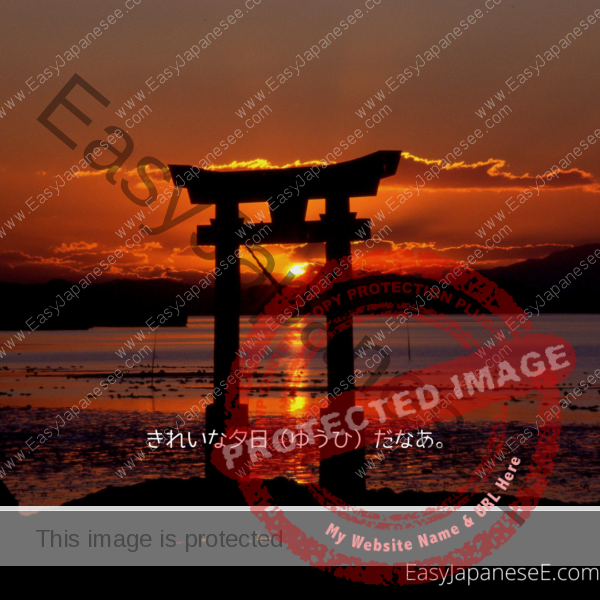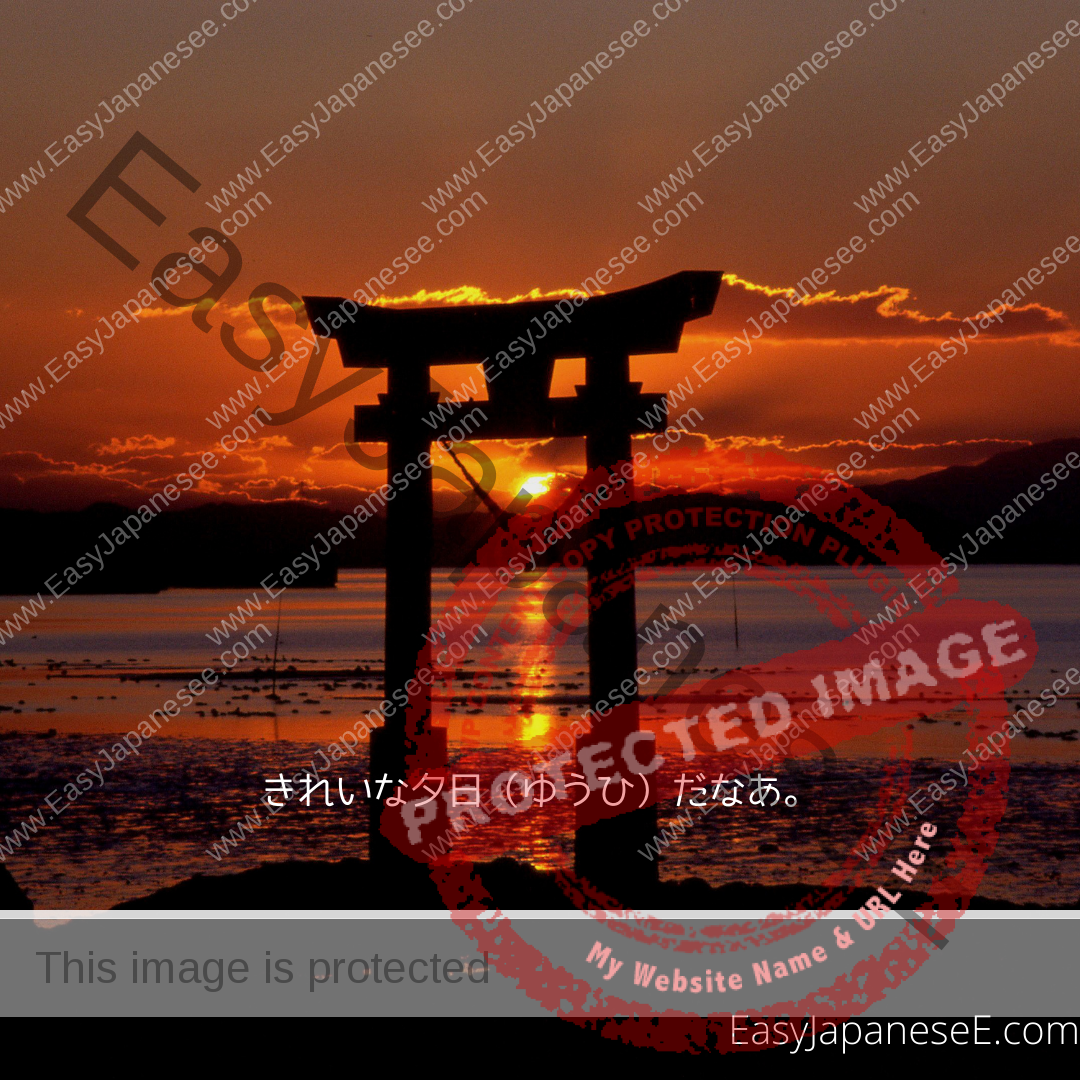
Today’s Grammar Point: ~な/~なあ
~な/~なあ is a sentence ending particle and used for:
- softening a statement about the speaker’s feeling (including what they want or want to do).
- an exclamation
- stating a wish
For softening an emotional statement
なあ also softens the statement about the speaker’s feelings. For this usage, read this post.
あの靴が欲しいなあ。
I’d love that pair of shoes.おいしいコーヒーが飲みたいなあ。
I’d love to have good coffee!そんなこと言われても嬉しくないなあ。
I’m not happy to hear that!
For an exclamation
- [plain form verb (past\non-past, affirmative negative)] な(あ)
- [いadj stem] い/かった な(あ)
- [なadj]だ/だった な(あ)
- [noun] だ/だった な(あ)
Examples
男の子はよく食べるなあ。
Boys can eat a lot!ダイエットしているんだけど、痩せないなあ。
I’m on a diet, but I can’t lose weight!よく来たなあ。
Oh, you came all the way! (welcome!)おいしいなあ。
It’s delicious!あの映画はよかったなあ。
That movie was so good!きれいだなあ。
How beautiful!あのテストは簡単だったなあ。
That test was so easy!きれいな夕日だなあ。(Today’s Caption)
What a beautiful sunset!優しいお母さんだったなあ。
She was such a kind mother!
For stating a wish
We use “subjunctive past” after “I wish” in English. For example, I wish you were here. It seems the same applies in Japanese also. We usually use past tense with ら before なあ.
- [plain past verb] ら + なあ
- [いadj stem] かった + ら + なあ
- [なadj] だった + ら + なあ
- [noun] だった + ら + なあ
Examples
母が生きていたらなあ。
I wish my mum were alive!この本がもっと安かったらなあ。
I wish this book were cheaper!父が元気だったらなあ。
I wish my dad were healthy!明日が休みだったらなあ。
I wish I could have a day off tomorrow!
If you liked this article, please share it with your friends using the social media buttons below. Also, your clicks on ads on this page help covering the cost of running this website. Your support will be much appreciated.


One Reply to “~な/~なあ”